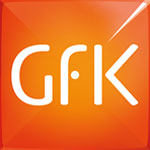The right navigation system for every application

These are the findings of a survey on the use of navigation devices, which was conducted by GfK Retail and Technology in Germany, France and the UK.
In competition with integrated solutions, portable navigation devices have largely dominated the market to date. However, the market is becoming increasingly saturated and a wide range of navigation solutions is now on offer for mobile phones.
The results of the GfK survey show that pure navigation devices - which include portable products and devices that are permanently integrated into a vehicle - score points with the size of the screen and the variety of different map formats. Consequently, 89% of respondents in the three countries surveyed clearly prefer these two types of device to mobile phones for car journeys. In fact, almost 70% of those who currently use only a mobile phone navigation system would prefer to use a portable or permanently integrated navigation system in the car.
Respondents take the view that pure navigation devices meet their requirements significantly better than mobile phones, particularly for longer journeys at the weekend or on vacation. Just under 80% declare themselves satisfied with portable or in-built devices for vacation trips, whereas only 66% say the same for mobile phones.
However, for some time now the topic of navigation has no longer been limited to cars. For example, electronic orientation aids are becoming increasingly popular as city guides or location finders. Around 70% of all respondents would prefer to use portable navigation solutions via their mobile phones as pedestrians, and almost 60% of those who currently only use a portable navigation device would prefer to be guided by a mobile phone with a navigation feature when on foot.
Different types of device find their niches
At present, the superiority of portable navigation devices to mobile phone applications is clearly affirmed by users. However, 53% of respondents in Germany envisage that mobile phones with new navigation features might compete with portable devices for market dominance in future. In the UK, 48% of consumers take this view, and 39% in France are of the same opinion.
In order for portable navigation devices to remain appealing in the long term, they must attract young customers, who tend to be more drawn towards mobile phone navigation systems. Features that enable internet access - "location-based services" - are very promising in this respect. The introduction of alternative payment models, whereby customers receive the device free of charge but pay for the services or maps they use, is another possibility. For example, 39% of respondents in the UK, 27% in France and 21% in Germany can imagine schemes of this nature being introduced in due course.
For the near future, GfK Retail and Technology is forecasting that neither pure navigation devices nor mobile phone solutions will occupy a dominant position in the market, but that all three types of device will hold their own in their particular niches. Contrary to the assumption of digital convergence - the merging of different functions in one device - it seems that in the field of navigation, consumers are using the devices in parallel, depending on the situation.
The survey
This survey on the use of navigation devices was conducted by GfK Retail and Technology in November 2010 in Germany, France and the UK. More than 2000 users of navigation systems took part, revealing their preferences, usage patterns and requirements. The survey also identified areas of potential in the market.
Source: GfK

The GfK Association was established in 1934 as a non-profit organization for the promotion of market research. Its membership consists of approximately 600 companies and individuals. The purpose of the Association is to develop innovative research methods in close cooperation with academic institutions, to promote the training and further education of market researchers, to observe the structures and developments in society, the economy and politics that play a key role in private consumption, and to research their effects on consumers. Survey results are made available to the membership. The GfK Association is a shareholder in GfK SE.
Go to: http://www.gfk.com





